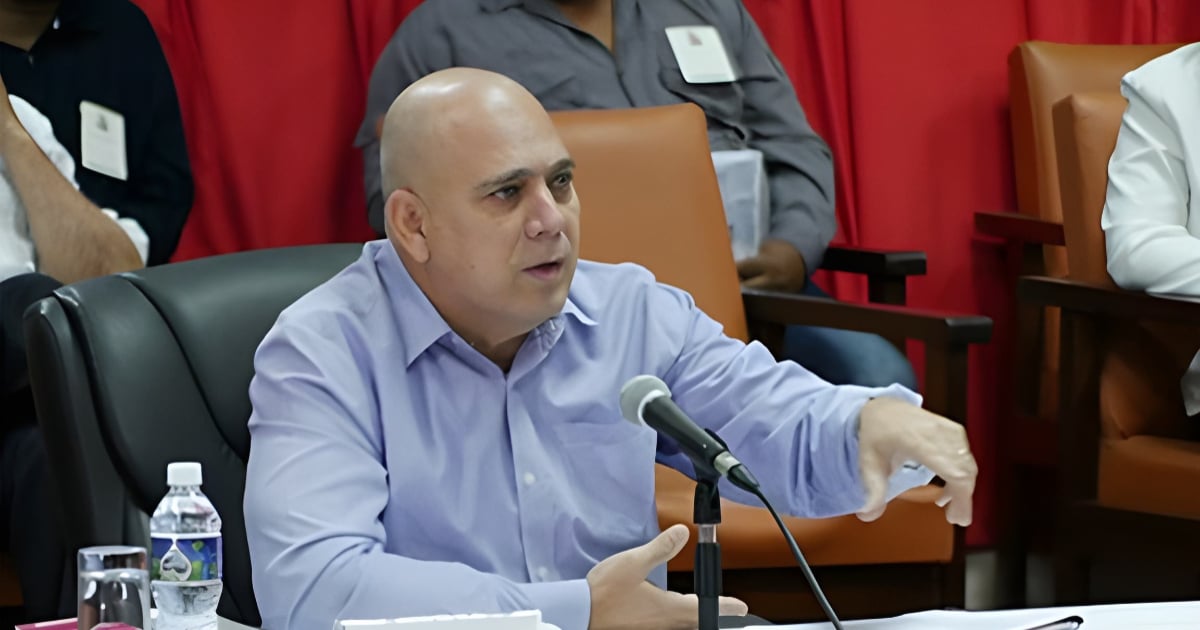He is seen everywhere—at rallies, conferences, walks through idle factories, and at Party events where empty promises are a staple. Roberto Morales Ojeda dutifully accompanies Cuba's current dictator in every political engagement. He supports him, shadows him, and occasionally steps in for him in speeches. He swaps out Provincial Secretaries of the Communist Party as if they were mere clerks. His face is now a staple in state-run media, not because of personal charisma, but due to relentless media exposure. The regime subtly positions him, not by announcement but by implication: Morales Ojeda is being groomed as a likely successor to Miguel Díaz-Canel.
A doctor by training, born in 1967, Morales Ojeda has meticulously climbed the ranks of the communist structure. From his early days as an official in the Provincial Committee of the PCC in Cienfuegos, where he rose to First Secretary, to his tenure as Minister of Public Health from 2010 to 2018, his career has been characterized by obedience and functionality, not leadership.
In 2018, he was appointed Vice President of the Council of State, later becoming Deputy Prime Minister. By 2021, he secured one of the most strategic positions of power: Secretary of Organization and Cadre Policy of the Central Committee of the PCC, a role responsible for shaping the island's future political leaders. If anyone is well-positioned within the system, it's him.
The Cuban Constitution of 2019, in Article 127, dictates that to be elected President, one must be between 35 and 60 years old at the start of a first term. Morales Ojeda turns 61 on June 15, 2028. However, if the National Assembly of People's Power conducts the presidential election—logically scheduled for April when the current mandate ends—he would still be within the permissible age range. This presents a narrow legal window for his candidacy, just enough to keep him in the race.
Apart from the constitutional technicality, the deeper issue is: Is there anyone else fit to assume this role? Today, the castrismo faces one of its most significant leadership voids. Even among the younger party members, there are no figures capable of crafting a new narrative, generating empathy, or wielding genuine influence. The natural succession is blocked by distrust, authoritarianism, and a lack of legitimacy that corrodes the state's institutions from within. There are no heirs, only survivors.
What Morales Ojeda symbolizes, then, is not leadership but continuity. His potential ascent to power would not signify a rupture or an attempt to salvage the project but rather a maneuver to keep the empty shell of the system alive through another compliant face. Another bureaucrat without luster, without popular backing, and without vision, but with the approval of those who truly hold power.
In this context, the gamble is especially perilous. Cuba is experiencing one of its worst crises in recent history: daily power outages, food shortages, collapsing public transport, mass exodus, and escalating repression. Added to this is the regime's growing international discredit and the pervasive sense of disillusionment among the populace, even if it does not always manifest in visible protests.
Miguel Díaz-Canel's administration has been disastrous. It has deepened isolation, legitimized repression, and driven hundreds of thousands of Cubans into exile. Instead of correcting course, it has solidified the collapse, but if there's one thing the regime seems less concerned about, it's the effectiveness of its leaders; loyalty is what matters. That's why Morales Ojeda fits perfectly into this mold: he's not a solution, but a continuation.
Biologically, the historical faces of the castrismo will begin to vanish one by one, gradually and inevitably. The dilemma will then be not just one of succession but of meaning: How to sustain a soulless structure, without narrative and without figures, in a society that no longer believes? What country will be left for Morales Ojeda—or whoever—to inherit?
The castrismo, which once stood as an ideological project, then as a power machine, and now as a survival model, clings to continuism. The problem is that there is nothing left to continue.
Frequently Asked Questions about Roberto Morales Ojeda and Cuba's Political Future
Who is Roberto Morales Ojeda?
Roberto Morales Ojeda is a Cuban politician, known for his loyalty and functionality within the Communist Party. A former Minister of Public Health, he is seen as a potential successor to President Miguel Díaz-Canel.
What role does Morales Ojeda currently hold?
As of now, Morales Ojeda serves as the Secretary of Organization and Cadre Policy of the Central Committee of the PCC, a strategic position that influences the grooming of future political leaders in Cuba.
Why is Morales Ojeda considered a possible successor to Díaz-Canel?
Though not charismatic, Morales Ojeda is perceived as a possible successor due to his unwavering loyalty to the regime and his strategic positioning within the party's hierarchy.
